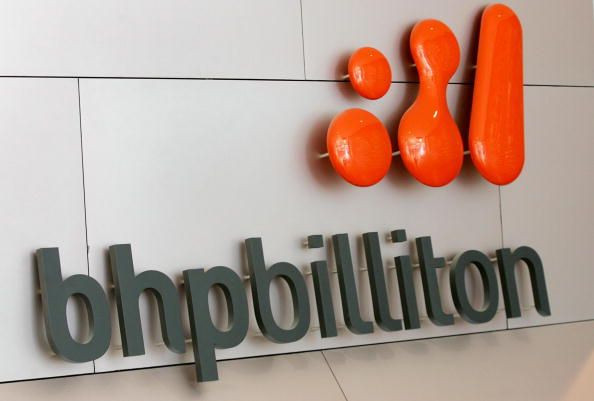BHP Billiton Slashes Dividend, Posts $5.67B Net Loss

Top global miner BHP Billiton slashed its interim dividend by 75 percent on Tuesday, abandoning a long-held policy of steady or higher payouts as a collapse in prices for oil, iron ore and coal pushed it into the red.
The widely anticipated end to BHP's progressive dividend policy came as the world's biggest diversified miner slumped to a net loss of $5.67 billion for the six months to Dec. 31, its first loss in more than 16 years.
"We need to recognize we are in a new era, a new world and we need a different dividend policy to handle that," Chief Executive Andrew Mackenzie said on a media call, warning of a prolonged period of weaker prices and higher volatility.
BHP also revamped the company's structure in a bid to simplify its operations, creating U.S. and Australian mineral divisions in a move that will see its longtime iron ore chief Jimmy Wilson and petroleum head Tim Cutt depart.
The size of the dividend cut, down from 75 cents to 16 cents, was more severe than market expectations for a payout as high as 35 cents. In future, the company pledged a minimum 50 percent payout of underlying profit.
"Given months of anguish and market debate regarding the dividend, we expect that 16 cents while disappointing, is a cash flow positive and therefore will likely be absorbed by the market," said Shaw and Partners analyst Peter O'Connor.
Mackenzie said the policy change was part of a broader strategy to help BHP Billiton manage volatility.
"The financial flexibility we will gain as a company from this move ... will allow us to invest counter cyclically," he said. "It will allow us to look at tier one assets in distress."
Standard & Poor's cut BHP's credit rating to 'A' from 'A+' this month and warned it might downgrade the rating further if the company failed to take more steps to preserve cash and review its dividend policy.
"I can't see (the ratings agencies) downgrading. They probably would have if the commodity outlook was still poor, but I think the outlook is starting to turn in BHP’s favor," said Fat Prophets mining analyst David Lennox.
PROFIT MISS
Underlying attributable profit plunged to $412 million from $4.89 billion a year earlier, missing analysts' forecasts for around $585 million, as commodities prices plummeted to multi-year lows.
"While the miss looks big in percentage terms, the numbers are quite frankly disappointingly low anyway," said Shaw's O'Connor, pointing to BHP's $100 billion asset base.
Despite the tough outlook, Mackenzie said BHP was still generating EBITDA (earnings before interest, tax, depreciation and amortization) margins of 40 percent, which is ahead of the reported figure for rival Rio Tinto of around 34 percent.
At today's spot prices, the company would expect to generate $10 billion in operating cash flow for the year, he said.
BHP's results included an after tax charge of $858 million following a dam disaster in Brazil at its Samarco joint venture with Vale, which killed 17 people in that country's worst environmental disaster.
BHP shares rose 2.9 percent to $17.66 in late morning trade, a seven-week high in a slightly firmer overall market.
(Reporting by James Regan; Additional reporting by Melanie Burton; Editing by Richard Pullin)
© Copyright Thomson Reuters 2024. All rights reserved.







